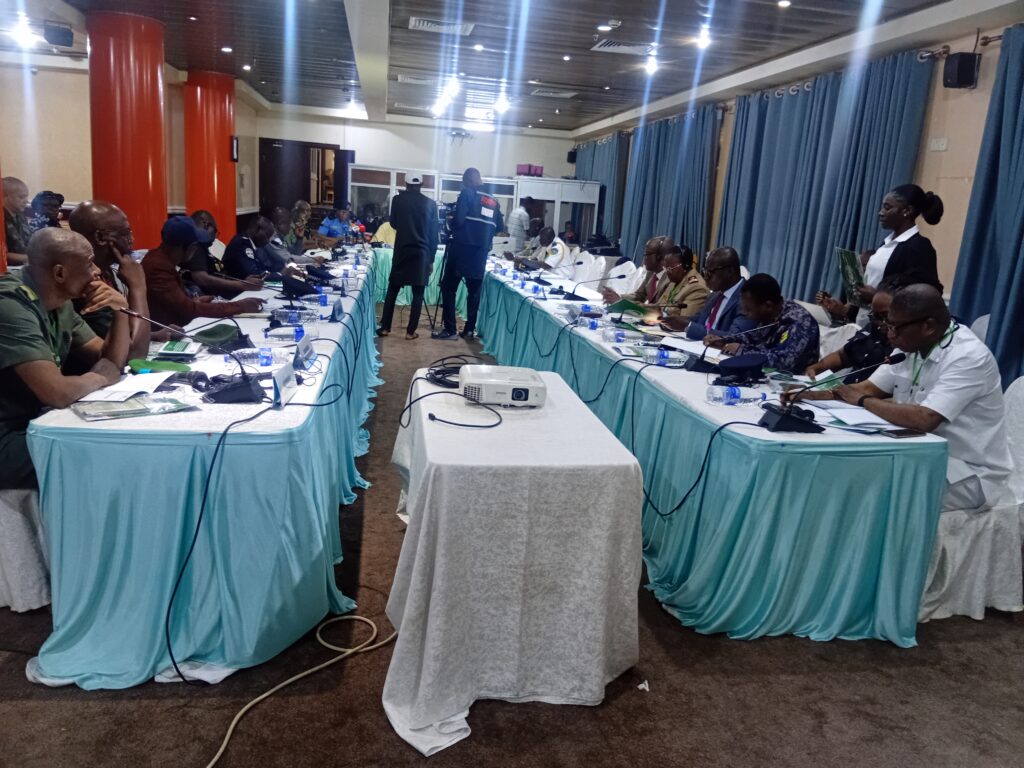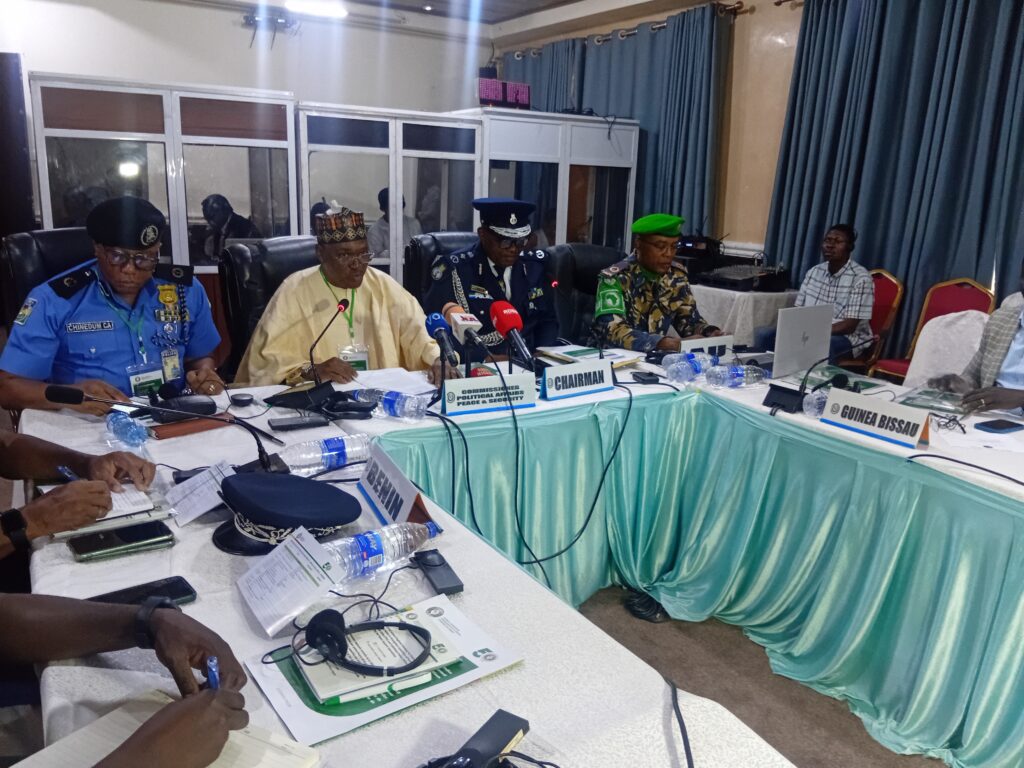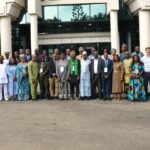ECOWAS Rallies Regional Police Forces to Boost Peace Operations, Tackle Escalating Security Threats.
By Raymond Enoch
In a decisive move to fortify West Africa’s collective security response, the Economic Community of West African States (ECOWAS) has convened its Annual Regional Meeting for Police Focal Points, urging stronger coordination, operational readiness, and unity among its 15 member states.

Held at the Ibeto Hotel in Abuja on Wednesday, August 6, the high-level meeting brought together senior police officials, peace and security experts, and regional stakeholders to assess and advance the capabilities of both Formed Police Units (FPUs) and Individual Police Officers (IPOs) under the ECOWAS Standby Force.
Representing the ECOWAS Commissioner for Political Affairs, Peace and Security, Ambassador Abdel-Fatau Musah, the Acting Head of Peace Support Operations, Mr. Sani Adamu, highlighted the urgency of collaborative action against growing regional threats.
“The security situation in West Africa requires a dynamic, collective approach,” Adamu stated. “From border crimes and cyberattacks to insurgencies and political instability, we must leverage our combined strength and build sustainable peace together.”
He emphasized that the forum serves as a platform to enhance training, readiness, and interoperability of national police institutions, ensuring swift deployment in peace support operations and long-term stability missions.
Adamu further called for improved inter-agency collaboration, citing the success of coordinated security strategies in countries like Sierra Leone. “True security isn’t only about arms—it’s also about trust, synergy, and sharing expertise,” he said.

Chairing the session, Sierra Leone’s Inspector General of Police, William Sellu—represented by Deputy Inspector General Sahr Senesi—stressed the need to institutionalize a standardised and operational police deployment roster.
“This workshop must go beyond a set of recommendations. The outcome should be a living, practical tool capable of restoring order and protecting our people with dignity,” Senesi declared.
He reaffirmed that ECOWAS’s shared goals of peace and stability can only be achieved through professionalism, preparedness, and cross-border solidarity.
Nigeria’s Inspector General of Police, Kayode Egbetokun, represented by ACP Aniagboso Chinedum, welcomed delegates with a call for regional unity and stronger interpersonal bonds among member state representatives.
“This meeting is not only strategic but personal—it’s an opportunity to reconnect and reaffirm our shared mission of regional peace and integration,” Chinedum noted. “The capacity development of our FPUs and IPOs is vital to the success of ECOWAS peace support operations.”
Participants reviewed progress reports, examined challenges in regional policing, and shared insights on enhancing deployment readiness. The meeting also provided updates on ongoing training programs and frameworks to standardize police operations under the ECOWAS Standby Force—a multidimensional peacekeeping body consisting of military, police, and civilian components.
Adamu concluded by urging attendees to actively shape a robust, flexible regional policing strategy that meets global standards and reflects the realities of West Africa’s evolving security landscape.
“We are investing in our future,” he said. “An effective ECOWAS Standby Force is not just a crisis-response mechanism; it’s a promise of peace to the next generation.”
With instability persisting in parts of the Sahel, Gulf of Guinea, and wider ECOWAS region, this annual gathering is a critical step toward building a cohesive, professional, and deployable regional police force capable of mitigating threats and restoring peace where needed most.
As the region continues to face asymmetric threats—from terrorism and transnational crime to political unrest—ECOWAS’s renewed commitment to police cooperation underscores its broader vision for peace, stability, and collective resilience.










